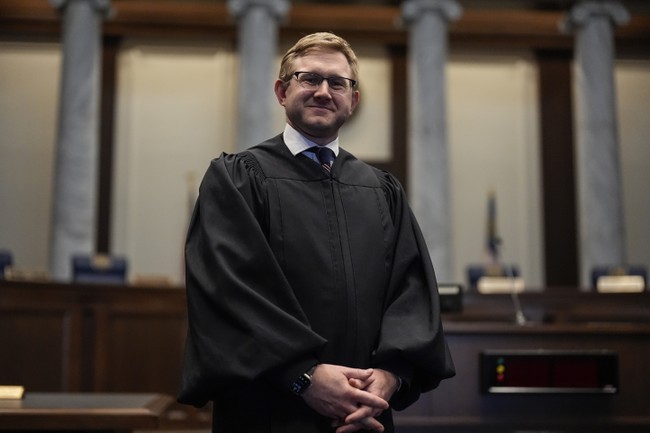
When you go into the voting booth, it’s easy to focus on the big races. Those high-profile contests at the federal and state level get the most coverage, and you can do your homework and learn about the candidates. If you have your ear to the ground or have decent local media, you can do the same with some local races.
But every state has those down-ballot races that are often nonpartisan and don’t get much media coverage. It’s easy to ignore races like these when you don’t know anything about the candidates.
Georgia has one of those races this year that is buried way down on next Tuesday’s ballot, but it’s one of the most pivotal and important contests all year. Nestled among a slew of nonpartisan statewide races with unopposed incumbents is the race for a seat on the Supreme Court of Georgia.
This state court race is crucial because several of the laws that Georgia’s General Assembly has enacted are likely to face court challenges in the near future. Georgia’s fetal heartbeat bill will go before the Supreme Court again, probably in the next term. Election integrity laws and bills that protect girls’ sports may make their way through the courts as well. Having justices on the court who will rule fairly on these matters and not look at them with an agenda is vitally important.
Recommended: Meet the Latest Trump Derangement Turncoat
The incumbent in this race is Justice Andrew Pinson. An appointee of Gov. Brian Kemp (R-Ga.), Pinson became one of the youngest judges on the Georgia Court of Appeals at age 35. A year later, Kemp appointed Pinson to serve on the Supreme Court. He also served as the state’s solicitor general from 2018 to 2021.
Because of his age, Pinson could serve on the court for a long time. Because of his philosophy of jurisprudence, he would continue to rule fairly on dozens of cases without applying an agenda to them.
“As judges, we take an oath to remain fair and impartial on every matter that comes before us,” Pinson has said. “I take that oath seriously because every Georgian deserves just and equal treatment under the law. Unfortunately, my opponent is running a hyper-partisan campaign based on promising to defy the judicial oath.”
Running against Pinson is John Barrow, who is one of those leftist politicians who is always running for something — anything — so that he can push a radical left-wing agenda. He spent a decade in Congress, but most recently, he ran for secretary of state in 2018 with a cringeworthy commercial in which he intoned with the worst Hollywood Southern accent ever, “I may be a Democrat, but I ain’t gonna biiiiiiite cha.”
Barrow has made no secret of the fact that he’s going to rule from the bench with an agenda. One of the AP images of him that I saw as I was searching for an image for this article showed him at a campaign event standing in front of a handwritten list of gun-control strategies. His campaign signs read “Vote for Choice,” and he has made no secret about making abortion the centerpiece of his campaign.
“Barrow said he believes Georgians have a state constitutional right to abortion and that voters would boost their chances of restoring broader access to abortion by doing something they’ve never done before: defeating an incumbent state justice,” reports the Associated Press.
Barrow’s partisanship is such an issue that a group of jurists and attorneys have written a letter explaining the stakes in this race:
There are several contested judicial races on the ballot for the upcoming May 21 elections, including one for Justice of the Georgia Supreme Court. Voters will have the opportunity to demand that our judges be nonpartisan and refrain from making public commitments about how they will decide cases and issues. The alternative is a partisan judiciary that is emboldened to put campaign promises and personal preferences above the Constitution and the law. The alternative would mean the end of the rule of law, and if our state starts down that path, we fear that it will be very difficult to turn back later.
The stakes on May 21 are high, and we encourage voters to think carefully about the ballots that they will cast in judicial elections.
“The winner of this race will have a vote on Georgia’s Heartbeat Law,” said Cole Muzio of Frontline Policy in an email to supporters. “The winner of this race could decide whether or not boys play girls’ sports in Georgia, parental rights are protected, religious freedom is honored, or election integrity rules are upheld.”
“Because of the low turnout, one can make the argument that your vote has never mattered more,” Muzio added.
It’s tempting to ignore these down-ballot races, but Georgians can’t afford to let a left-wing activist judge have a seat on the highest court in the state. Here’s hoping Georgia voters do the right thing.











